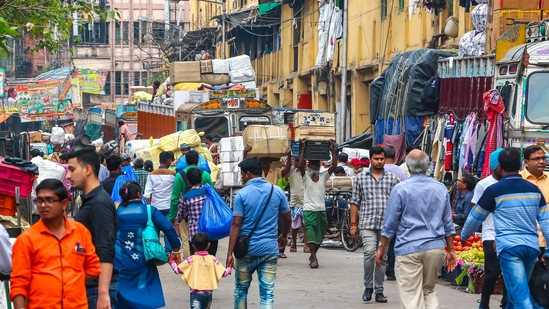The Supreme Court on Thursday directed states and union territories to come out with a swift response protocol (SRP) for reaching immediate help to road accident victims underscoring the rise of road accidents in the country and the need to save lives of victims who fail to get immediate medical aid.

Granting six months for the exercise to be completed, the bench headed by justice Abhay S Oka said, “We are of the view that states and UTs must work on having a SRP. In every state, the grassroot level situation may be different. We direct the states and UTs to take effective steps to develop the SRP with the objective to ensure help immediately reaches to accident victims.”
The court also sought a report from states and UTs on compliance of the Motor Vehicle Act which requires transport vehicle drivers employed by the governments of states/UTs to have restricted working hours to ensure safety of passengers by avoiding accidents caused by driver fatigue. The court noted that section 13 of the Motor Transport Workers Act lays down that no transport worker shall be required or allowed to work for more than eight hours in any day and 48 hours in any week.
The court directed the states and UTs to submit compliance on this aspect by end of August to the Ministry of Road Transport and Highways (MoRTH) which will then submit a comprehensive report to the court for passing necessary directions.
The court was dealing with the two applications filed by a public-spirited lawyer Kishan Chand Jain who raised concern over rising number of road accidents and lack of effective steps to curb them. He cited instances from last year where victims of accidents on Delhi-Agra highway were left unattended for hours. By the time, the police arrived, their mutilated bodies were discovered as vehicles had run over the lifeless bodies.
While Jain’s application underscored a systemic issue in patrolling and response mechanisms, he flagged the issue about post-accident harm to road accident victims and their bodies by fast-moving traffic being a critical issue globally which poses humanitarian concerns and aggravates the trauma of affected families.
While the application urged the court to impose an obligation on states and UTs for ensuring protection to road accident victims, senior advocate Gaurav Agarwal assisting the court as amicus curiae was of the view that it may not be practical to put the responsibility on states as accidents may be caused due to diverse reasons.
The bench, also comprising justice Ujjal Bhuyan said, “A very important issue has been flagged by the applicant. Road accidents in our country are on the rise. Reasons may be different…Though it will be difficult for court to issue mandamus, we are of the view that states and UTs must work on having SRP.”
Jain suggested that the protocol should include fixing responsibility for delayed action on part of the road agency or police, public awareness campaigns about prompt reporting of accidents, display of emergency contact information, enhanced patrolling and surveillance during vulnerable hours, and involvement of local communities in maintaining vigil on expressways and highways.
The National Highway Authority of India (NHAI) represented by additional solicitor general (ASG) Vikramjeet Banerjee informed the court that some of these protocols are already in place. The court directed NHAI to file an affidavit on expiry of six months pointing out steps taken to implement its protocols and told states to be guided by NHAI protocol in framing the SRP.
Even on the issue of driver fatigue, the bench felt that to enforce the law on working hours, penal provisions may have to be invoked. “Unless there are penal provisions (against states), the important provision on working hours of drivers cannot be enforced,” the court said.
Jain informed the court that data provided to him under the Right to Information Act revealed that for the period from 2012 to 2023, among the fatal accidents on Yamuna Expressway, 44% occurred on account of the driver dozing off while on the wheels.
“The overarching goal is to protect the lives and well-being of citizens by addressing a critical aspect of road safety that has significant implications for public health and welfare,” Jain said in his application stating that state has a duty to take effective steps to secure Article 21 (right to life) of citizens.

